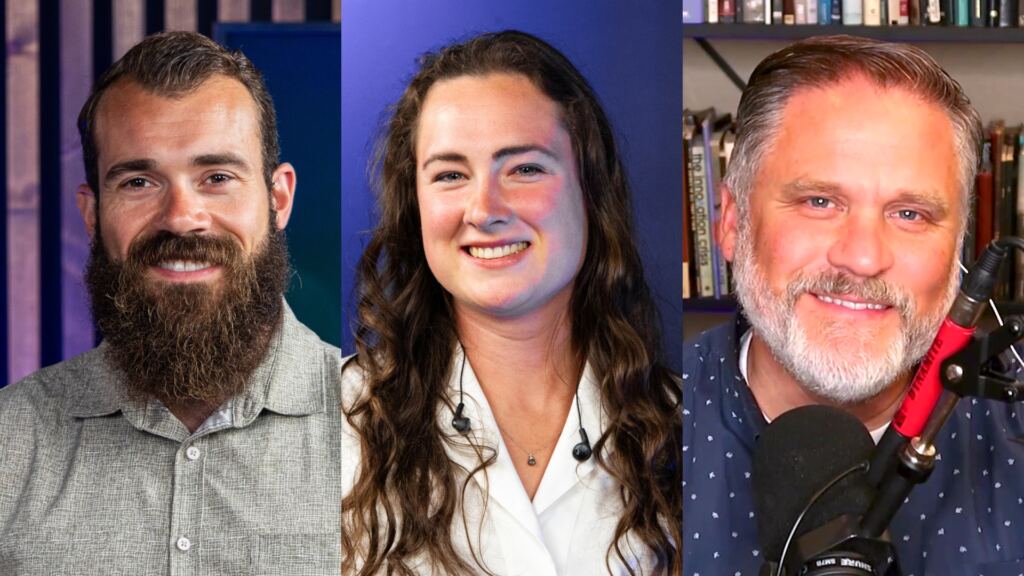We Christians have been talking about embodiment and physicality quite a bit lately.
Gregg Allison’s Embodied, John Kleinig’s Wonderfully Made, and Sam Allberry’s What God Has to Say about Our Bodies all hit the shelves in the last few years and are generating fruitful discussion. The idea that our physical bodies matter and are a crucial factor in the Christian life and faith seems to be gaining traction. A biblical, body-positive understanding of our humanness is crucial today as we navigate issues ranging from body-shaming to image insecurity to gender dysphoria. In other words, a clear view of biblical somatology (the study of how the Bible presents human bodies) is something we gospel messengers really need today. As someone who’s been closely examining yoga for a while now, I can’t help but see how different Christianity’s positive view of human physicality is from some of the world’s other thought systems.
One of yoga’s scriptures is the Yoga Sutras, and though today’s practices vary wildly from one studio to the next, many claim this fourth-century Sanskrit text as a basis. The writing’s complexities run deeper than most of us care to explore, but what’s clear from the surface is that its basic philosophy is dualistic. It sees the world as consisting of two realities: the material creation known as prakrati and a vast array of immaterial beings called purushas. The Sutras maintain that even humans contain these two realities within ourselves. We have our tangible bodies that are part of the worldly prakrati. But we also have a deeper self that is our eternal, formless purusha. The goal of yoga, according to Sutras 4:26–34, is to cast off that material, prakratic part of ourselves we call a body and to realize that our real essence lies in our purusha. Put simply, the somatology of the Yoga Sutras is body-negative.
Many Christian voices on embodiment today also acknowledge a kind of dualism when it comes to personhood. We have our physical body and we have an immaterial soul, which is present with the Lord during that interval between our earthly death and Christ’s return. The value the Bible grants our tangible bodies, however, could not be more different from how the Yoga Sutras view material things. After God created Adam’s body from the dust, he said that it was very good. When the new and perfect Adam came to redeem fallen humanity, he came as a flesh-and-blood baby. And when King Jesus returns, he’ll set up a new earth where his redeemed will praise him in glorified bodies forever. In other words, the Bible—or more precisely, biblical somatology—is body-positive.
Now, yoga reveres countless other scriptures besides the Yoga Sutras, and what’s practiced at your local studio may have nothing to do with any of them. So my point is not that good, biblical somatology says we should avoid doing anything called yoga today. Rather, what’s important to realize is that a strong, Christian understanding of human embodiment is outstandingly affirmative when compared against certain other somatologies. The Bible esteems our God-given bodies in a way that many of the world’s other thought systems don’t. This should be something we treasure as Christians, and it should be something we put in the foreground as we boldly proclaim the Bible’s unique truth to a world that so desperately needs it.
Our faith’s uniquely affirmative posture toward human corporality is a marvelous thing. Over the centuries, the body-negating philosophy of the Yoga Sutras helped push countless mendicant yogis toward severe asceticism and bizarre mortifications of the flesh. Likewise, grievous misunderstanding of the Bible’s teaching on the body led the Gnostics to anathematize wholesale all things physical and corporeal. Even today, unhealthy views of the body and body image are wreaking psychological havoc on our society’s young people. And ironically, some secular notions of body positivity end up affirming positions on body care that are anything but healthy. Our bodies are not something to be cast off, nor are they something to be celebrated without any effort toward stewardship, as some contemporary notions of body positivity seem to call for. Make no mistake, unbiblical understandings of our humanness will be just as harmful in more recently evangelized regions of the world as they are in the West. Negative somatologies, like what’s found in the Yoga Sutras, are the opposite of what we humans need today.
Our bodies have a purpose. They must be trained and disciplined in service of Christ’s kingdom, because they’re our God-given vessels for advancing that kingdom.
Robust, biblical somatology, on the other hand, gives us a better way. Our bodies have a purpose. They must be trained and disciplined in service of Christ’s kingdom, because they’re our God-given vessels for advancing that kingdom. I’m convinced that talking about our bodies as the God-crafted, purpose-filled vessels they are will be an increasingly important feature of our work as gospel messengers. And from my perspective in yogic studies, I appreciate that today’s burgeoning discussion of embodiment among Christians shines a spotlight on the fact that the Bible ascribes a healthy purposefulness to our bodies that other somatologies do not have.
Fruitful discussion among believers about human physicality is not a passing fad. After all, it’s been over ten years since Matthew Anderson wrote Earthen Vessels and Joel Green gave us Body, Soul, and Human Life. Since then, Paula Gooder has contributed to the conversation with Body: Biblical Spirituality for the Whole Person, and David Taylor’s A Body of Praise just came out earlier this year. Thank God that the Bible’s body-positive view of our humanness is getting more and more press. As we continue to advance the idea of human physicality from a biblical perspective, let’s cherish the fact that our gospel message is particularly body-positive.





